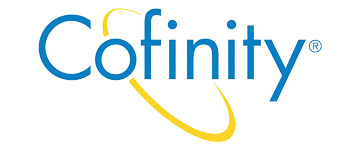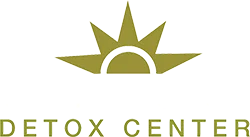Medication-Assisted Treatment: A Path to Sustainable Recovery
Overcoming a physical dependence on opioids or alcohol is a challenging journey, especially during the early stages of recovery. Withdrawal from these substances can bring on intense cravings, severe physical distress, and even dangerous health risks, making detox one of the hardest phases to overcome. Yet, hope exists. For individuals dealing with these challenging symptoms, medication-assisted treatment (MAT) offers a pathway to successful recovery. At Chattanooga Detox Center, we provide MAT services designed to ease withdrawal and support individuals in the Chattanooga, Tennessee, area on their journey to sobriety.
What is Medication-Assisted Treatment?
Medication-assisted treatment (MAT) is an evidence-based approach that combines FDA-approved medications with behavioral therapies to treat opioid and alcohol use disorders effectively. The purpose of MAT is to reduce cravings and alleviate the physical symptoms associated with withdrawal, helping individuals focus on their recovery. While MAT medications support long-term sobriety, it’s essential to note that they differ from emergency medications, such as Narcan, which are used to counteract opioid overdoses. MAT medications are not intended to reverse overdoses but rather to prevent them by maintaining sobriety and reducing relapse risks.
Medication-Assisted Treatment Statistics
The use of MAT is increasingly common, as demonstrated by data from the 2020 National Survey on Drug Use and Health (NSDUH):
- 17.2% of individuals aged 12 and older in alcohol addiction treatment used MAT in the past year.
- 11.2% of people aged 12 and older with an opioid use disorder received MAT during that time.
- 30.5% of individuals in treatment for illicit drug use received MAT for opioid misuse in the past year.
These statistics reveal that approximately one in five clients in alcohol treatment and about one-third in drug treatment receive MAT. This approach has become integral to effective treatment and recovery for substance use disorders.
Call (423) 455-9887
Insurance Can Cover Up To 100%
We Accept Most Insurance. Please Note We Are Not Affiliated or Endorsed By Insurance Companies.
Medication-Assisted Treatment for Opioid Use Disorder
Medications for opioid use disorder (OUD) work by targeting opioid receptors in the brain to mitigate cravings and reduce the effects of opioids in the event of relapse. Here are the primary medications used to treat OUD:
- Naltrexone – Naltrexone fully blocks opioid receptors in the brain, effectively reducing cravings during detox. This medication is available as a tablet or injection.
- Methadone – As one of the longest-standing MAT treatments, methadone activates opioid receptors at a much lower intensity than opioids like heroin or fentanyl, helping reduce withdrawal symptoms and cravings.
- Buprenorphine – This medication partially activates opioid receptors, producing mild effects that reduce cravings and lower the risk of overdose.
Though there are no FDA-approved medications for stimulant use disorders (such as cocaine or methamphetamine), certain psychotropic medications can alleviate symptoms of withdrawal. Anti-depressants, sedatives, and anti-anxiety medications are often used during detox to reduce symptoms like anxiety, insomnia, and depression, providing clients with a safer detox experience.
Medication-Assisted Treatment for Alcohol Use Disorder
Alcohol, though legal, can be highly addictive, and alcohol withdrawal can be life-threatening if untreated. MAT medications for alcohol use disorder (AUD) aid in reducing cravings, lowering the risk of relapse, and increasing the likelihood of long-term recovery. Common MAT medications for AUD include:
- Naltrexone – This medication is also used for AUD. By blocking “feel-good” receptors that are typically activated by alcohol, naltrexone reduces cravings and can decrease the amount consumed if a relapse occurs.
- Acamprosate – Acamprosate reduces alcohol cravings, helping people maintain sobriety after detox. While it doesn’t alleviate withdrawal symptoms, it plays a significant role in relapse prevention.
- Disulfiram – Disulfiram produces unpleasant effects when alcohol is consumed, which serves as a deterrent. If a person drinks while taking disulfiram, they’ll experience side effects that discourage further drinking.
Benefits of Medication-Assisted Treatment
The benefits of MAT extend beyond reducing withdrawal symptoms. MAT in Chattanooga offers advantages such as:
- Reduced cravings for drugs and alcohol
- Discouraging relapse by reducing substance use’s pleasurable effects
- Increased retention rates in treatment programs
- Focused recovery – MAT allows clients to focus on behavioral therapies and healing
- Reduced risk of accidental overdose in case of a relapse
- Improved recovery outcomes, including decreased rates of relapse and hospitalization
- Decreased risk of health complications related to substance abuse, like HIV or hepatitis C
Begin Medication-Assisted Treatment in Chattanooga, TN
For those experiencing opioid or alcohol withdrawal, MAT can be a life-saving option that provides comfort, safety, and greater engagement in the recovery process. By combining MAT with a comprehensive treatment program, individuals are more likely to achieve lasting recovery. If you or someone you know is ready to take the first step, Chattanooga Detox Center offers compassionate and expert care to help you overcome addiction.
Contact Chattanooga Detox Center today at (423) 455-9887 to speak with an admissions specialist and start the journey toward a healthier, substance-free life. We’re here to support you every step of the way.








 Gupta Brings Over A Decade Of Experience To Chattanooga Detox Center. Dr. Gupta Specializes In Treating Adults With Substance Use And Psychiatric Disorders. His Extensive Clinical Experience Includes Medication-Assisted Treatment, Medical-Surgical Consultation And Psychiatric Stabilization In Acute Settings. Dr. Gupta Completed His General Psychiatry Residency At The University Of Connecticut Followed By A Fellowship In Addiction Psychiatry At Emory University. He Is Double Board-Certified In Both Of These Specialties. Dr. Gupta Is Passionate About His Work In Substance Abuse And Is An Advocate For Reducing The Stigma Surrounding Mental Illness.
Gupta Brings Over A Decade Of Experience To Chattanooga Detox Center. Dr. Gupta Specializes In Treating Adults With Substance Use And Psychiatric Disorders. His Extensive Clinical Experience Includes Medication-Assisted Treatment, Medical-Surgical Consultation And Psychiatric Stabilization In Acute Settings. Dr. Gupta Completed His General Psychiatry Residency At The University Of Connecticut Followed By A Fellowship In Addiction Psychiatry At Emory University. He Is Double Board-Certified In Both Of These Specialties. Dr. Gupta Is Passionate About His Work In Substance Abuse And Is An Advocate For Reducing The Stigma Surrounding Mental Illness. President Alec Pagliarulo has spent his entire career working in the addiction and mental health community. He has worked in various roles, including benefits analyst, admissions coordinator, and business development specialist. Alec is passionate about providing the best possible care to individuals struggling to overcome addiction. He aims to create positive recovery experiences, including programs rooted in integrity that pave a path for long-term growth.
President Alec Pagliarulo has spent his entire career working in the addiction and mental health community. He has worked in various roles, including benefits analyst, admissions coordinator, and business development specialist. Alec is passionate about providing the best possible care to individuals struggling to overcome addiction. He aims to create positive recovery experiences, including programs rooted in integrity that pave a path for long-term growth. Carter is a successful real estate and private equity investor. Prior to founding Chattanooga Detox Center, Carter worked in insurance brokerage in New York City and as a real estate private equity acquisitions specialist in Atlanta. He completed his undergraduate degree at Washington & Lee University and has an MBA from the UNC Keenan-Flagler Business School.
Carter is a successful real estate and private equity investor. Prior to founding Chattanooga Detox Center, Carter worked in insurance brokerage in New York City and as a real estate private equity acquisitions specialist in Atlanta. He completed his undergraduate degree at Washington & Lee University and has an MBA from the UNC Keenan-Flagler Business School.